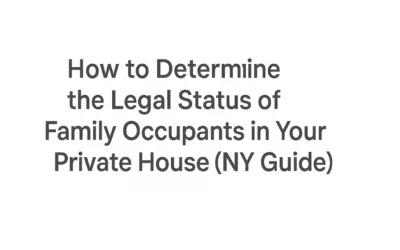Please note: This article is authored by Roland G. Ottley, Esq.
The labyrinth of immigration law contains few passages more treacherous than the denial of humanitarian parole: a decision that can leave families separated across continents and individuals stranded in desperate circumstances. When faced with such a denial, the instinctive response is to seek an appeal, to challenge the decision through established legal channels. However, the harsh reality of humanitarian parole denials presents a unique challenge that demands a recalibration of expectations and strategy.
The Immutable Nature of Humanitarian Parole Decisions
Unlike the vast majority of immigration determinations, humanitarian parole denials stand as monuments of finality within the bureaucratic landscape. The United States Citizenship and Immigration Services (USCIS) renders these decisions without recourse to traditional appellate mechanisms: no Administrative Appeals Office review, no Board of Immigration Appeals consideration, no federal court intervention on the merits of the denial itself.
This absolute finality distinguishes humanitarian parole from other immigration benefits and creates a sobering reality: once USCIS issues a denial, that specific application reaches its terminus. The decision cannot be overturned, revisited, or challenged through conventional appeal processes that govern other areas of immigration law.

Navigating Beyond the Denial: Alternative Pathways to Hope
While the absence of appellate remedies may appear to seal one's fate, the legal framework provides alternative avenues that, while not appeals in the traditional sense, offer renewed opportunities for relief. The most viable path forward involves the submission of an entirely new humanitarian parole application: a fresh petition that can incorporate enhanced evidence, updated circumstances, and refined legal arguments.
The Art of Strategic Reapplication
A new application represents more than mere repetition; it demands a comprehensive reassessment of your case's foundation. This process begins with a meticulous analysis of the denial notice, which serves as a roadmap revealing the specific deficiencies that led to the initial rejection. USCIS typically articulates the reasons for denial with sufficient detail to guide your strategic response.
The reapplication process requires the complete submission of Form I-131, accompanied by all requisite supporting documentation and filing fees. This is not a supplemental filing or amendment: it constitutes a wholly independent application that will undergo complete review by USCIS adjudicators.
Timing as a Strategic Element
The temporal dimension of reapplication carries profound implications for your case's success. USCIS generally processes humanitarian parole applications within 120 days of receipt, though complex cases may require additional time. This processing timeline must factor into your strategic planning, particularly when dealing with time-sensitive humanitarian emergencies.

Fortifying Your New Application: A Comprehensive Approach
The preparation of a subsequent humanitarian parole application demands elevated attention to detail and strategic enhancement of every component. Success hinges upon addressing the specific deficiencies identified in the denial while simultaneously strengthening the overall foundation of your humanitarian claim.
Enhanced Documentation and Evidence
Your new application must present compelling evidence that directly addresses the humanitarian need with clarity and specificity. Medical emergencies require comprehensive medical records, physician statements, and treatment plans. Family reunification cases benefit from detailed documentation of relationships, circumstances necessitating reunion, and evidence of hardship caused by separation.
Financial documentation supporting Form I-134, the Affidavit of Support, must demonstrate unequivocal ability to provide financial support throughout the intended period of parole. Bank statements, employment letters, tax returns, and asset documentation should present a clear picture of financial stability and commitment.
Crafting a Compelling Humanitarian Narrative
The written statement accompanying your application serves as the cornerstone of your humanitarian argument. This narrative must articulate the urgency and compelling nature of your circumstances while addressing any concerns raised in the initial denial. The statement should weave together factual circumstances, emotional impact, and legal necessity into a coherent argument for parole approval.
Effective humanitarian statements employ specific examples, quantifiable impacts, and clear explanations of why alternative solutions prove inadequate. The narrative should demonstrate not merely preference for entry but absolute necessity driven by circumstances beyond the applicant's control.

Strategic Considerations for Complex Cases
Certain humanitarian parole cases present unique challenges that require specialized approaches and considerations. Medical emergencies, for instance, may benefit from expert medical opinions that translate complex diagnoses into clear explanations of treatment necessity and urgency.
Addressing Common Denial Reasons
USCIS frequently denies humanitarian parole applications based on insufficient evidence of humanitarian need, inadequate financial support, or failure to demonstrate that the beneficiary will depart upon parole expiration. Your new application must directly confront these concerns with enhanced documentation and clearer explanations.
When medical treatment forms the basis of your humanitarian claim, ensure that medical professionals provide detailed explanations of why treatment cannot be obtained in the beneficiary's current location and why delay in treatment would cause irreparable harm.
Exploring Concurrent Immigration Options
While pursuing a new humanitarian parole application, prudent strategy may involve exploring alternative immigration pathways that could provide similar relief. Family-based immigration petitions, asylum applications for those already in the United States, or other humanitarian programs may offer parallel avenues toward your ultimate goal.
This multi-pronged approach requires careful coordination to ensure consistency across applications and avoid inadvertent conflicts that could undermine any single petition's success.
The Critical Role of Professional Guidance
The complexity inherent in humanitarian parole applications, combined with the inability to appeal denials, elevates the importance of experienced legal representation. Immigration attorneys specializing in humanitarian cases bring essential knowledge of USCIS adjudication patterns, successful case strategies, and potential pitfalls that could doom even well-intentioned applications.

Professional representation becomes particularly crucial when previous applications have failed, as attorneys can provide objective analysis of denial reasons and develop comprehensive strategies for addressing identified deficiencies. This expertise often proves determinative in distinguishing successful applications from those destined for repeated denial.
Building Long-term Immigration Strategies
Experienced immigration counsel can evaluate your circumstances within the broader context of available immigration benefits, helping identify the most promising pathways for achieving your ultimate immigration goals. This comprehensive approach may reveal opportunities for permanent solutions that transcend the temporary nature of humanitarian parole.
Maintaining Perspective and Resilience
The journey through humanitarian parole denial and reapplication tests both legal acumen and personal resilience. Understanding the limitations of the current legal framework while maintaining focus on available alternatives requires both strategic thinking and emotional fortitude.
Success in this arena demands patience, persistence, and meticulous attention to detail. Each application represents an opportunity to present your case more effectively, armed with enhanced understanding of USCIS expectations and requirements.

The absence of traditional appeal rights does not signify the absence of hope. Through strategic reapplication, enhanced documentation, and professional guidance, many individuals successfully obtain humanitarian parole after initial denials. The key lies in understanding that this process requires not appeals but rather renewed advocacy: presenting your humanitarian need with greater clarity, stronger evidence, and more compelling arguments.
Your humanitarian circumstances deserve recognition and relief. While the path may prove more complex than traditional appellate review, dedicated effort toward strengthening your case can yield the humanitarian parole approval that brings families together and provides essential relief in times of crisis. The pursuit of justice in humanitarian cases demands not surrender to initial denials but rather strategic persistence toward ultimate success.
If your humanitarian parole application has been denied, contact our experienced immigration team to discuss your specific circumstances and develop a comprehensive strategy for moving forward. Time-sensitive humanitarian needs require immediate attention and strategic planning: reach out today to begin building your path toward approval.









0 Comments